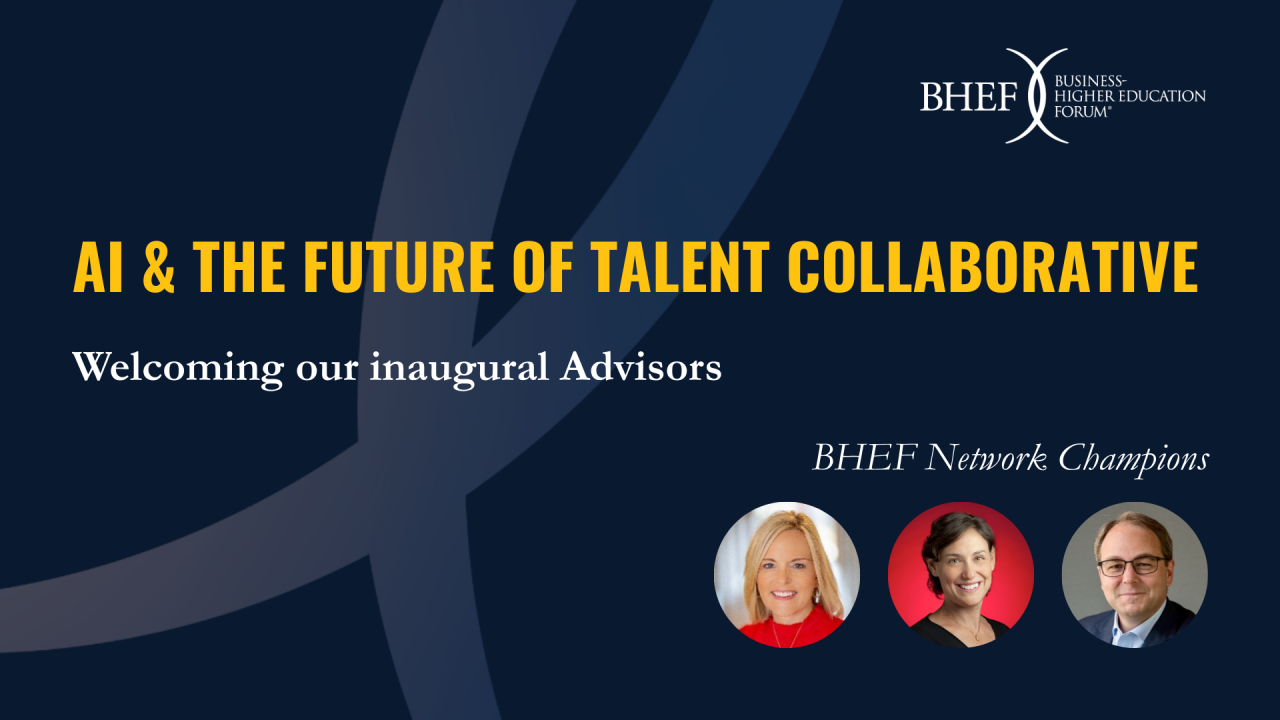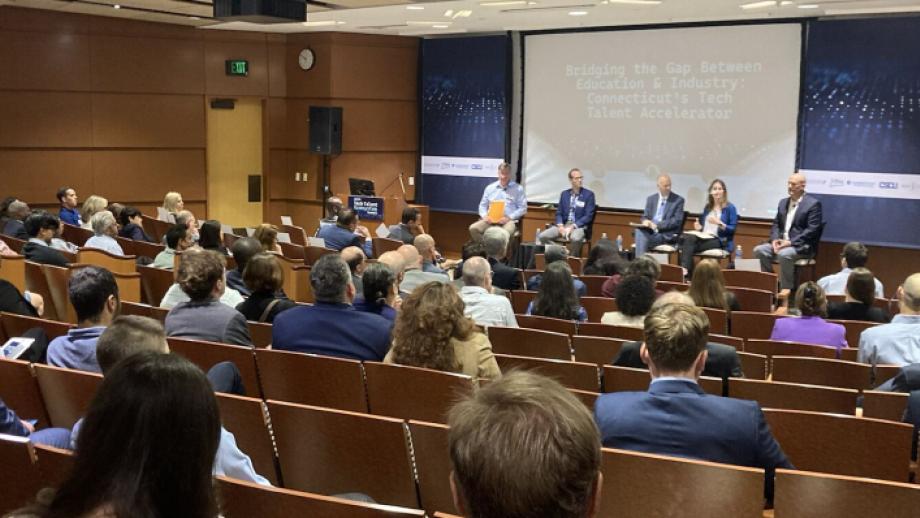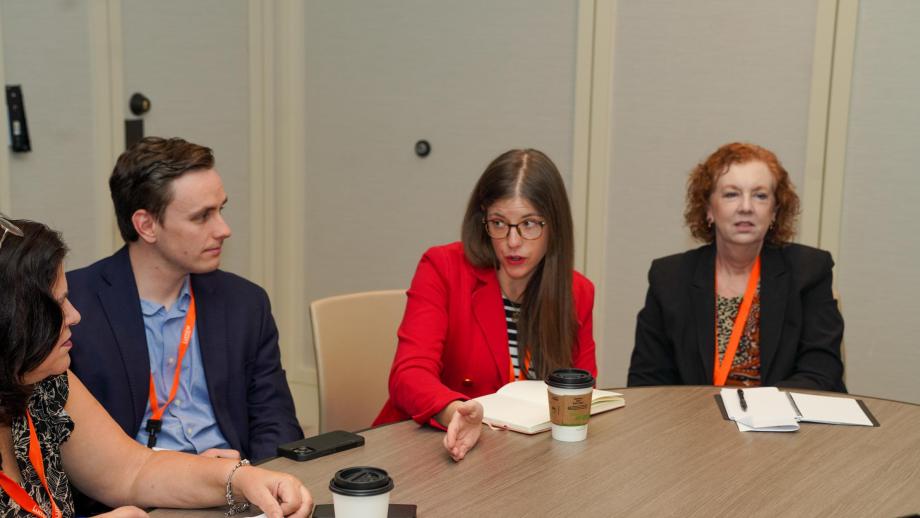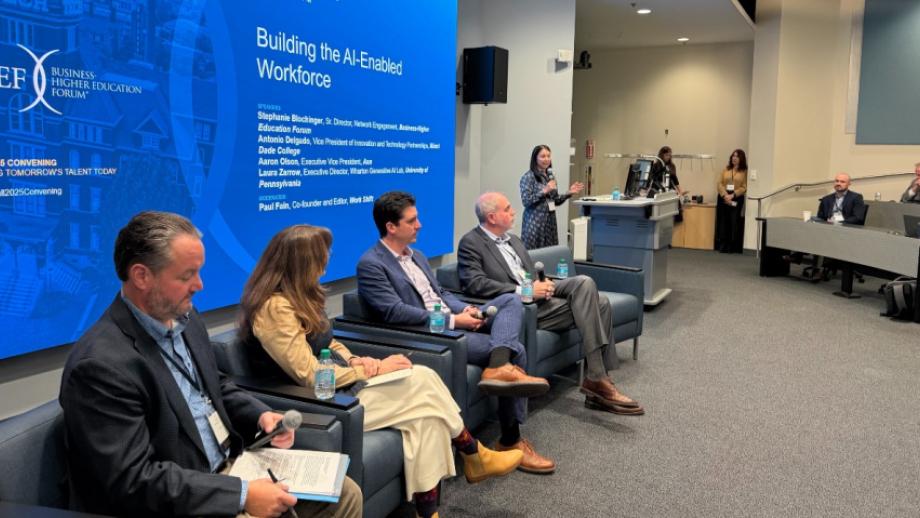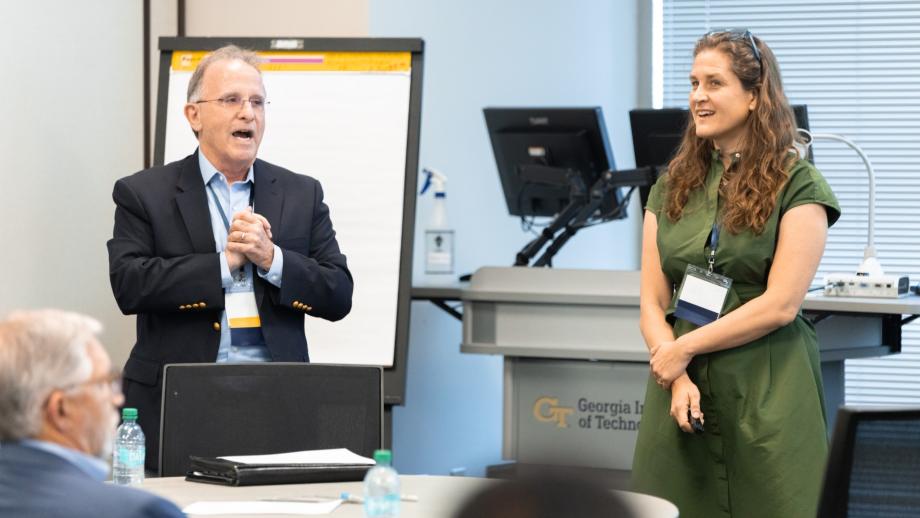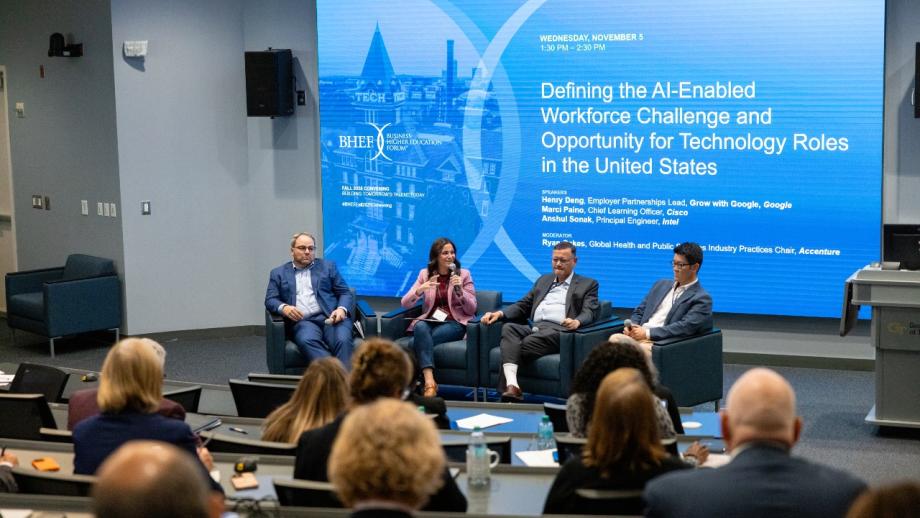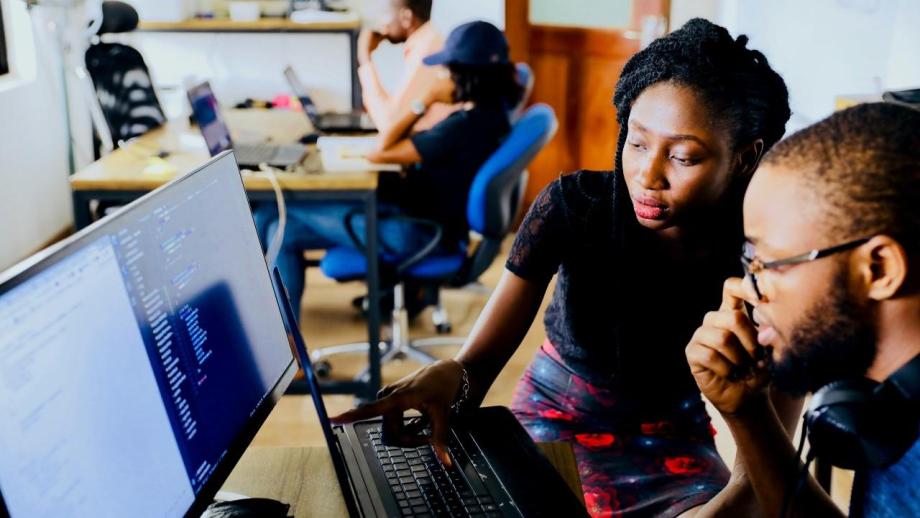The Business-Higher Education Forum (BHEF) is pleased to announce its inaugural Advisors to its AI & Future of Talent Collaborative ("BHEF AI Collaborative"). Launched in May 2025 under the leadership of BHEF Board Members Ryan Oakes (Accenture), Lisa Gevelber (Google), and Jae Lynn Akin (State Farm), the BHEF AI Collaborative will help business and higher education leaders align AI technology adoption with workforce needs across industries and occupations.
BHEF AI Collaborative advisors will guide the organization's Board of Directors, Network Partners, and the broader talent development field on the development and implementation of practical solutions to prepare learners and workers for an AI-transformed economy.
The advisors represent a diverse group of experts from business, higher education, government, economics, and workforce. Each brings a wealth of knowledge and experience with industry-leading collaborative solutions, including the AI-Enabled ICT Workforce Consortium led by Accenture and Google to the AWS Tech Alliance, that will ensure an effective, ethical, and transparent approach to how business and higher education leaders integrate the emerging skills demands created by rapid AI technology adoption.
The inaugural advisors are:
- Jae Lynn Akin, HR&D Executive – Talent Management, State Farm**
- Lisa Gevelber, Chief Marketing Officer (Americas), Google**
- Ryan Oakes, Global Health & Public Service Industry Practices Chair, Accenture**
- Valerie Singer, General Manager for Global Education, AWS**
- Javed Aslam , Chief of Artificial Intelligence, Northeastern University*
- Phaedra Boinodiris, Global Leader for Trustworthy AI, IBM Consulting
- Antonio Delgado Fornaguera, Vice President of Innovation and Technology Partnerships, Miami Dade College*
- James Frazee, Vice President for Information Technology and Chief Information Officer, San Diego State University *
- Lev Gonick, Chief Information Officer, Arizona State University
- Francesca Gabriella Ioffreda, Chief Innovation Officer, State of Maryland
- Amber Ivey, Vice President, Impact Advisory, Social Finance
- Rajamma Krishnamurthy, Head of AI Center of Excellence, Microsoft
- Elena Magrini, Head of Global Research, Lightcast
- George Siemens, Chief Scientist/Co-Founder, @Matter & Space
- Joe Sallustio, EdD, Vice President of Industry Engagement, Ellucian*
- Ed Smith-Lewis, Senior Vice President, Strategic Partnerships and ICB, United Negro College Fund
- Sarah Steinberg, Head of Global Public Policy Partnerships, LinkedIn
- Alex Swartsel, Associate Vice President, Jobs for the Future Labs, Jobs for the Future
- Laura Zarrow, Executive Director, Wharton Generative AI Lab, University of Pennsylvania
**BHEF Board Member *BHEF Network Partner Institution
The Advisors will first convene virtually in early October, ahead of BHEF’s Fall Convening at Georgia Tech on November 5–6, 2025, which will spotlight BHEF’s forthcoming AI-Enabled Professional framework and its next phase of development.
Together, these leaders will shape a national agenda for responsibly integrating AI into talent development, ensuring that learners, workers, higher education institutions, and employers are equipped for the future of work.
